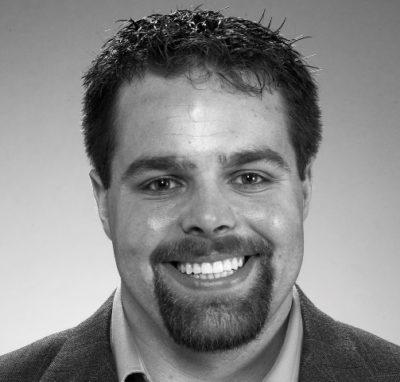By P Wysong
When Dr. Kevin Gregg graduated from anesthesia residency at University of Calgary he began his career, as most doctors do, with substantial debt.
“In my case, I left with $230,000 debt from medical training,” he said. Dr. Gregg, an anesthesiologist in Edmonton, Alberta, completed his residency in 2016, started up his practice and started a family. Needless to say, managing his finances became even more complex.
Dr. Gregg, then a medical trainee , had been managing his finances with MD Financial – the service previously offered through the Canadian Medical Association that was sold for 2.6 billion dollars last year. But like many physicians, he felt surprised by their sale and lack of consultation and transparency behind the deal and wanted a change.
“After that, I explored relationships with other financial institutions. Advisors came and went and they didn’t all have the same level of expertise and experience with physicians. I was looking for someone with more specific knowledge and someone to grow with,” he said.
At one bank, the branch manager was his main point of contact, which started off well. But there was staff turnover and Dr. Gregg ended up dealing with three different people over a three-year period.
“It was frustrating. I needed somebody who really understood the nuances of practicing medicine,” he said. Often, he had to meet with separate advisors for different tasks. The ideal situation would be to have one advisor well-versed in the myriad of financial tasks physicians deal with.
Then, through an online group that focused on physician finances, he learned about the CIBC Full-Service Physician Package and was one of the first people to join the program. Launched in April of this year, the service offers a comprehensive suite of solutions designed to address the diverse needs of a physician’s overall portfolio. CIBC advisors undergo additional training so they understand the corporate and personal financial structures physicians work under.

Like other physicians, Dr. Gregg has both his medical practice business and personal life to manage. On the personal side, there’s the debt from medical school, costs associated with starting a family such as buying a house, and maintaining savings for emergencies and vacations. The business side includes establishing capital, getting a corporate credit card, and having resources to buy equipment. Then there are investments, insurance and planning for retirement. It is a relatively unique situation and it helps to have a financial institution that understands the needs of both sides and takes an integrated approach to manage, build and protect your wealth.
Dr. Gregg has worked closely with Simon Belz – CIBC’s Business Development Manager in the Healthcare segment and has been very happy with the quality advice and service provided by CIBC. “I feel that my advisor really understands physicians. It’s easy to move money around my various accounts, and I’m not being nickel-and-dimed with annoying fees. The service is seamless and our advisor is exceptional,” Dr. Gregg said.
He was also impressed by how easy it was to set up a line of credit, that there was minimal hassle getting a corporate card, and he can manage various tasks himself online. He works with only one advisor for everything who can be reached by email, phone and SMS, and often will meet at unusual hours. However, additional experts from other parts of the bank can be easily pulled in if needed.
Built around what physicians want “CIBC’s Full Service Physician Package” offers a comprehensive suite of products and services to help physicians reach their business and personal financial goals, says Belz. “Consulting with doctors ensures the program is a good fit.” He explained that CIBC did intensive research which included interviews both with physicians and financial advisor.
Our research provided rich insights into the day-to-day activities of doctors – the corporate structures they used, what their schedules were like, how their offices worked, whether they worked at multiple sites, financial needs in the office environment, how they needed money to flow, and how they got paid.
“We recognize that physicians work in unique environments,” Belz said.
Advisors know about the various payment schemes for physicians, and the fact the legislative environment physicians operate under can change affecting taxation and renumeration.
“CIBC Advisors work with physicians at all stages of their career be they recent grads, doctors who are growing their practice, or those who are transitioning or retiring,” Belz said.
For physicians growing their practice, successfully managing their finances means reducing their tax burden, having a financial plan in place for retirement and having consistently well-performing investments. The goal is to help doctors maintain their lifestyle as they plan for the retirement!
Having such a comprehensive program and advice that makes it radically simple to manage your finances is a big a win because, as Dr. Gregg pointed out, “We get very little training in medical school about the business side of running a medical practice.”
This content was sponsored by CIBC.




